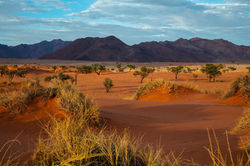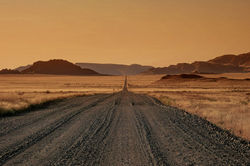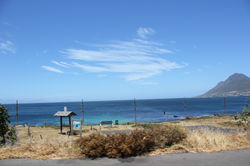the soul of africa
Namibia is the soul of Africa, characterized by vast open spaces, breathtaking scenery and great contrasts – ocean, dunes, mountains and deserts. This vast desert country of rolling dunes and swirling mists stirs the spirit and moves the heart.
Namibia is so large and sparsely populated that it is possible to discover enormous open spaces without roads, towns, trees or even stones, just the lonely desert wind passing through one of the most enchanting corners of the earth.
 |  |  |
|---|---|---|
 |  |  |
 |

location
Namibia officially the Republic of Namibia, is a country in Southern Africa. Its western border is the Atlantic Ocean. It shares land borders with Zambia and Angola to the north, Botswana to the east and South Africa to the south and east. Although it does not border Zimbabwe, less than 200 metres (660 feet) of the Botswanan right bank of the Zambezi River separates the two countries.
Namibia gained independence from South Africa on 21 March 1990, following the Namibian War of Independence. Its capital and largest city is Windhoek.
Namibia is a member state of the United Nations (UN), the Southern African Development Community (SADC), the African Union (AU) and the Commonwealth of Nations.



culture
Namibia is truly unique, influenced by various cultures during colonization and now reborn from the shadows of Apartheid in 1990. What has emerged is a true sense of unity in diversity, the coming together of at least 11 major ethnic groups, each celebrating their past while working together toward the future.
You will notice this in dress, language, art, music, sport, food and religion. There exists a wonderful collage, but first and foremost, Namibians are proud to be Namibian. And for good reason.
Read all about the different ethnic Groups consisting of Basters, Caprivians, Coloured, Damara, Herero, Himba, Kavango, Nama, Owambo, San, Tswanas & Whites.
 |  |  |
|---|---|---|
 |  |  |
 |  |  |
|---|---|---|
 |
language
At least thirty-five languages indigenous to South Africa are spoken in the Republic, ten of which are official languages of South Africa: Ndebele, Pedi, Sotho, Swati, Tsonga, Tswana, Venda, Xhosa, Zulu and Afrikaans.
The eleventh official language is English, which is the primary language used in parliamentary and state discourse, though all official languages are equal in legal status, and unofficial languages are protected under the Constitution of South Africa, though few are mentioned by any name.
language
According to the 2011 census, the two most spoken first languages are Zulu (22.7%) and Xhosa (16.0%).
The next two are of European origin: Afrikaans (13.5%) developed from Dutch and serves as the first language of most Coloured and White South Africans; English (9.6%) reflects the legacy of British colonialism, and is commonly used in public and commercial life.
South African Sign Language has legal recognition but is not an official language, despite a campaign and parliamentary recommendation for it to be declared one.
Best Time to Visit
The best time to visit South Africa for a wildlife safari is from May to September. During these winter months, the east of the country (where the main parks are located) experiences its Dry season. Wildlife is easier to spot during the Dry season because vegetation thins, and animals gather around waterholes and rivers.
Cape Town’s Dry and Wet seasons are opposite to those in Kruger and Johannesburg. Therefore, the best time for visiting Cape Town and surrounds is during the dry summer months of November to March.
seasons
Winters in South Africa occur between June and August.
Johannesburg enjoys a dry, sunny climate, with the exception of occasional late afternoon downpours in the summer months of October to April. Winter is the sunniest time of the year, with cool days and cold nights.
The Western Cape province has a Mediterranean climate with warm to hot, dry, sunny summer weather and mild, rainy conditions in winter.

GETTING THERE
There are many different ways of travelling to South Africa, but most visitors fly to Johannesburg or Cape Town, depending on where their tour starts from.
Most international airlines fly into South Africa direct be that from Australia, Europe, the UK , the Far East and most recently direct flights between the US and South Africa.
We assist our international travelers with flights for their entire journey starting in their home country. We book and co-ordinate your entire South African Experience.
vISAS
If you want to visit South Africa, you must produce a valid visa before you can enter into the country. A visa will be issued for a visit for tourism or business purposes and is valid for a period of 90 days.
Some countries are exempted from visa control, which means that citizens from those countries do not need a visa to visit South Africa.
Visas are not issued at South African ports of entry, and airline officials must insist on visas before allowing passengers to board. If you arrive without a visa, immigration officials are obliged to put you onto a flight back to your home country.
Depending on your intended visit, you can apply for a Visitor’s Visa or a Transit Visa.


.png)


















